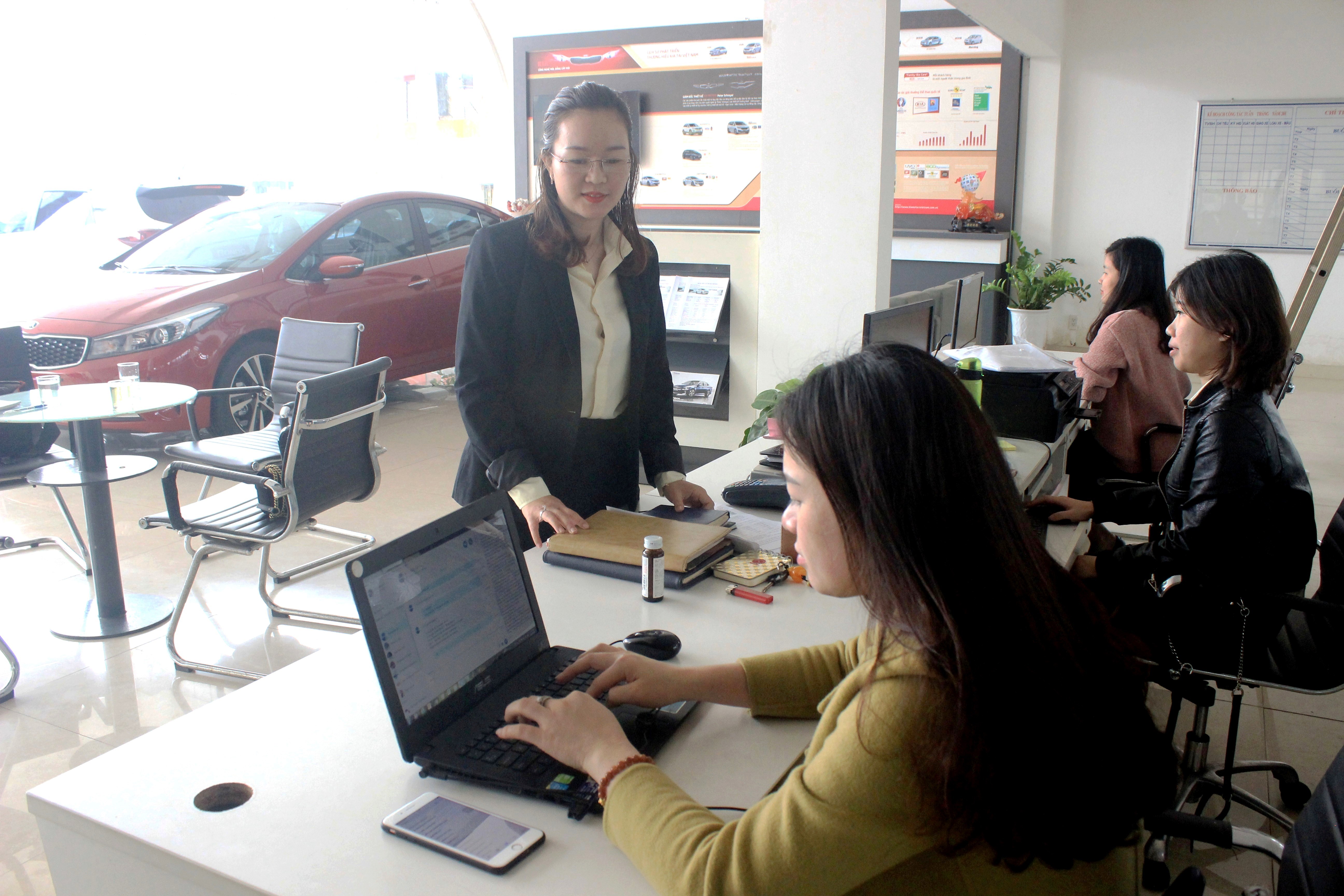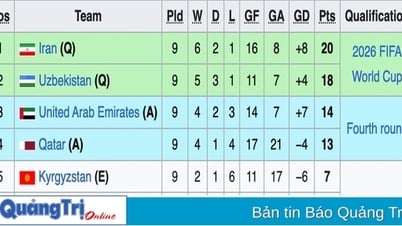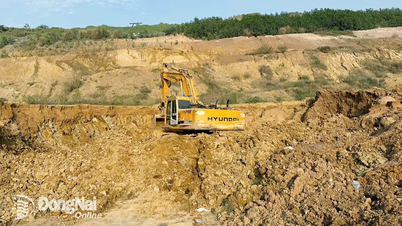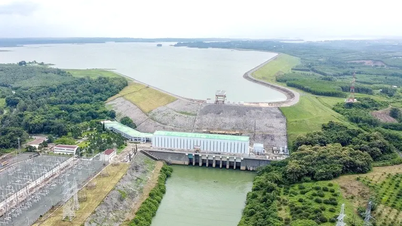In 2024, although the economy faces many challenges due to many causes, with the province's strong determination, the socio-economic sector has achieved remarkable results. GRDP is estimated to increase by 5.97% compared to 2023, with even growth in the following areas: agriculture, forestry and fishery 3.37%, industry and construction 6.12%, services 7.04%. The economic structure continues to shift positively towards increasing the proportion of industry, construction and services, reducing the proportion of agriculture. The scale of the province's economy reaches 53,508 billion VND, GRDP per capita reaches 82 million VND, up 9.14% over the previous year.
Investment and business development are always the top priority and key resource in the province's economic policy. In particular, the private economy is considered an important driving force, the economic sector with foreign direct investment (FDI) is an indispensable part of the provincial economy. In 2024, 364 new enterprises were established with a total registered capital of VND 3,171 billion, bringing the total number of enterprises in the province to 3,401 units.
The general picture shows that the production and business activities of enterprises are gradually recovering and growing, with profits tending to be higher in the following year than in the previous year, contributing to the establishment of many new enterprises. However, there are still some enterprises that have to dissolve or stop operating due to the impact of the disruption of the order supply chain. This has affected the issue of labor, employment as well as the payment of wages and related policies at enterprises, thereby affecting labor relations.
In 2024, the province created new jobs for 14,700 workers, exceeding the plan by 18%. The job structure created is quite diverse, including 6,299 workers working in the province, 5,367 workers working outside the province and 3,000 workers working abroad, mainly concentrated in markets such as Taiwan (1,167 people), Japan (1,427 people) and Korea (382 people). With a total population of 659,214 people in 2024 and a workforce of 336,890 people, the number of workers working in enterprises is estimated at about 55,000 people.
In fact, all levels, sectors, agencies, unions, enterprises and labor-using organizations are increasingly aware of the importance of labor relations. In particular, the awareness of compliance with labor laws and respect for policies and regimes for employees from the employer side has clearly changed, that is, not only focusing on profits but also paying attention to the human factor, creating a solid foundation for a stable and sustainable working environment. Compliance with the law and full implementation of policies and regimes not only helps to minimize legal risks but also contributes to building trust and commitment of employees to the enterprise.
In addition to the achievements, the evasion and delay in paying social insurance by some enterprises has affected the rights of workers, while the rate of violations of labor laws in management, contracts, regulations, agreements and labor safety after inspection is still high. The number of enterprises with trade unions and union members is still low, leading to few enterprises registering internal regulations, negotiating and submitting collective labor agreements. In particular, grassroots trade unions in the non-state sector have not effectively promoted their role in protecting workers, while the team of labor mediators lacks practical experience, requiring professional training to resolve labor disputes.
From that reality, the Project was issued to strengthen state management of labor, promote dialogue, negotiation, balance interests between employees and employers, minimize disputes, illegal strikes, protect the rights of all parties, ensure a stable investment and business environment and maintain political and social stability.
To effectively implement the objectives set out in the Project, all levels, sectors and units need to strengthen leadership and direction in building harmonious labor relations through thoroughly implementing Directive No. 37-CT/TW of the Central Party Secretariat on strengthening leadership and direction in building harmonious, stable and progressive labor relations in the new situation.
Thereby raising awareness of the position and role of building harmonious, stable and progressive labor relations associated with political, social and business environment stability. Thereby attracting investment, developing the economy, ensuring the legitimate rights and interests of employees and employers in a socialist-oriented market economy and international integration.
Strengthen the effectiveness of state management by perfecting the apparatus, enhancing legal dissemination, management and support for workers' representative organizations, developing the labor market information system, and promoting inspection and examination. Promote dialogue, collective bargaining and grassroots democracy by improving the skills of the parties, encouraging the signing of collective agreements at all levels and effective dispute resolution.
Improve the capacity of mediation and dispute resolution institutions through strengthening the team, improving operational efficiency, establishing focal points and coordinating to ensure security and order, and applying information technology. Promote the effectiveness of trade union activities by innovating, strengthening the role, training cadres, disseminating laws, developing union members, innovating working methods, training dialogue skills, monitoring policy implementation and caring for workers' lives. Implement welfare policies for workers on housing, social works, and trade union institutions to improve their lives and build harmonious labor relations.
Aquarius
Source: https://baoquangtri.vn/phat-trien-quan-he-lao-dong-trong-tinh-hinh-moi-194152.htm





























![[Photo] General Secretary To Lam receives Korean Ambassador to Vietnam](https://vphoto.vietnam.vn/thumb/1200x675/vietnam/resource/IMAGE/2025/6/6/a0765b7543784cbcbfe4755b67d43ab4)

![[Photo] President Luong Cuong works with Hung Yen and Thai Binh Provincial Party Committees on implementing Resolution of the 11th Central Conference, 13th tenure](https://vphoto.vietnam.vn/thumb/1200x675/vietnam/resource/IMAGE/2025/6/6/127b735d2761484d81dcee0d7725a25b)
























































![[OCOP REVIEW] Tu Duyen Syrup - The essence of herbs from the mountains and forests of Nhu Thanh](https://vphoto.vietnam.vn/thumb/402x226/vietnam/resource/IMAGE/2025/6/5/58ca32fce4ec44039e444fbfae7e75ec)











Comment (0)